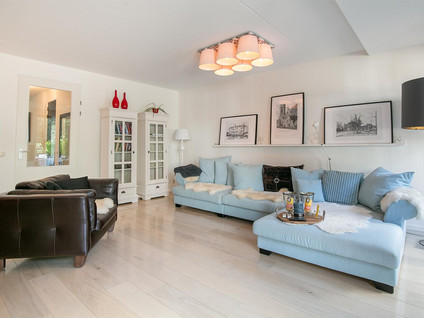Preparing for your first rental viewing in the Netherlands
Published on November 17, 2024 by Alec Siemerink

Going to your first rental viewing in the Netherlands? While it’s an exciting step, preparing well for a viewing is essential in this competitive market. Knowing what to bring, what questions to ask, and how to spot potential issues can make a big difference in securing a great rental. Here’s a step-by-step guide to make the most of your viewing and increase your chances of landing the right property.
Bring the essentials
When attending a rental viewing, having the right documents and essentials on hand will show the landlord you’re serious and prepared. Here’s what to consider bringing along:
- Proof of income and employment: Most landlords want assurance of your financial stability. Bring recent payslips, an employment contract, or proof of self-employment if applicable.
- Personal ID: Have a form of official identification, such as a passport or national ID.
- Bank statements: A few months’ worth of bank statements can help illustrate your financial reliability.
- Previous rental references: A letter from a past landlord vouching for you as a tenant is a strong plus.
- Application documents (if available): Some landlords will accept applications directly at the viewing if you express interest. Consider preparing a brief application letter introducing yourself and explaining why you’re interested in the property.
Bringing these essentials shows you’re organized and could even help move your application to the top of the list.
Key questions to ask
To avoid unexpected issues, ask these questions during the viewing:
-
Can I register at this address?
Registration (inschrijven) is required for receiving mail and complying with residency laws in the Netherlands. Make sure the landlord permits it, as some listings do not allow municipal registration. -
Are utilities included in the rent?
Some rentals include utilities (gas, water, electricity) in the rent, while others don’t. Clarify this so you can accurately budget for monthly expenses. -
What is the policy on rent increases?
Dutch rental contracts often include clauses on annual rent adjustments, typically tied to inflation or government guidelines. It’s helpful to know if these adjustments apply to the property. -
Are there any maintenance responsibilities?
Determine which maintenance tasks are covered by the landlord and which might fall to you as the tenant, such as replacing light bulbs or minor repairs. -
How long is the rental contract?
Ask whether the contract is fixed-term or indefinite. A fixed-term contract is standard but may not allow early termination, while an indefinite-term contract offers more flexibility.
Spotting potential issues
During the viewing, inspect the property thoroughly to check for possible red flags:
- Condition of appliances and utilities: Check that essential appliances (like heating, stovetop, or refrigerator) work correctly. Note if any maintenance is needed.
- Signs of dampness or mold: Pay attention to walls and corners, particularly in the bathroom and kitchen, for signs of dampness or mold, as these could indicate structural issues.
- Noise levels: If possible, visit during different times to observe the surrounding noise levels, especially if the property is near busy streets or popular areas.
- Window quality and insulation: In the Netherlands, good insulation is crucial for managing winter heating costs. Confirm that windows are double-glazed to help with insulation.
- Security features: Inquire about locks and security, especially if the property is on the ground floor or in a busy area. Knowing it’s secure will give you peace of mind as a new tenant.
The viewing process and etiquette
Dutch landlords appreciate punctuality and politeness, so plan to arrive on time or even a few minutes early. Greet the landlord or agent warmly and be prepared to follow their instructions during the viewing. A polite, respectful approach reflects well on you as a potential tenant and can make a favorable impression. Additionally:
- Show genuine interest: Engage by asking questions and commenting on aspects of the property you like. This shows the landlord you’re taking the viewing seriously.
- Limit distractions: Keep phone use to a minimum to show you’re fully focused on the property.
Stay ahead with HuurScout’s alerts
In the competitive Dutch rental market, timing is crucial. As properties can be snapped up within hours of listing, using an alert tool like HuurScout ensures you’re notified of new properties as soon as they’re available. Set specific filters for your ideal location, rent range, and amenities to receive instant notifications that fit your criteria. By being one of the first to view new listings, you increase your chances of securing a great rental that meets your needs.
Ready for your first viewing?
Your first rental viewing in the Netherlands is an exciting step! By coming prepared, asking the right questions, and knowing what to look out for, you’ll make a strong impression and be well-prepared to make an informed decision. Remember, tools like HuurScout can keep you ahead of the curve by alerting you to new listings so you don’t miss out on any opportunities in this fast-paced market. Happy house-hunting, and good luck finding your perfect new home!


